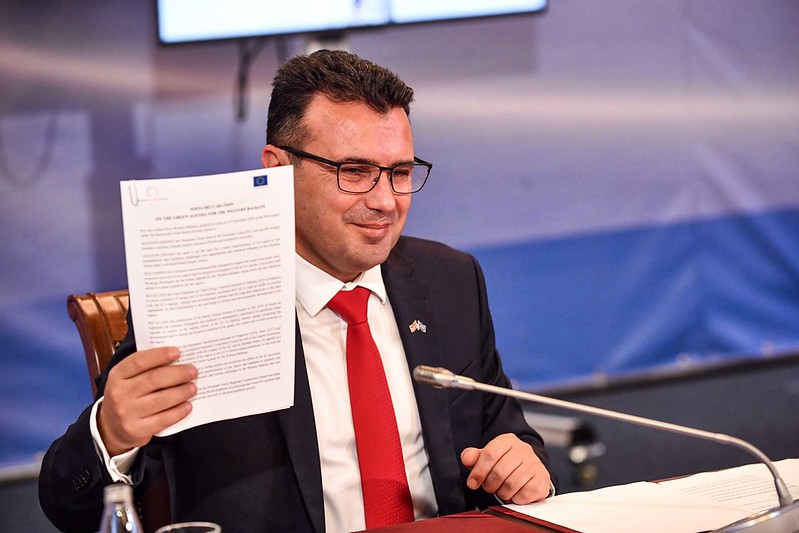After all major participants remained strangely silent over the dispute between Macedonia and Bulgaria during the Sofia summit, the Macedonian Government briefed the press, telling them that it will continue to work with Bulgaria on finding a solution. Meanwhile, the summit was marked by just one broad statement from German Chancellor Angela Merkel, joining through a video link, that the two countries need to cooperate with each other, and Bulgarian Prime Minister Borisov’s refusal to mention the opening of EU accession talks for Macedonia during his joint press conference with Zoran Zaev.
Success of the Berlin process gives positive momentum to encourage the process. That is complemented with the heightened engagement of the German presidency. After our meetings in Sofia we remain dedicated to finding a solution. That is important for (North) Macedonia and for Bulgaria. They want a solution and so do we. We work together as good neighbors dedicated to our shared European future. If not, we will have shared failure, Government sources said in their briefing.
Zaev and Borisov were planning to co-host a major regional summit with the participation of key European countries as a show of trust and willingness to cooperate. But, as Bulgarian requests began to multiply in the run up to the summit, it turned into a crisis meeting, meant to save what can be saved from Macedonia’s EU bid, which Bulgaria is now officially blocking.
Bulgaria demands a long list of concessions from Macedonia on issues of history and national identity, that will clearly burden the entire accession process, if it begins at all.





Comments are closed for this post.